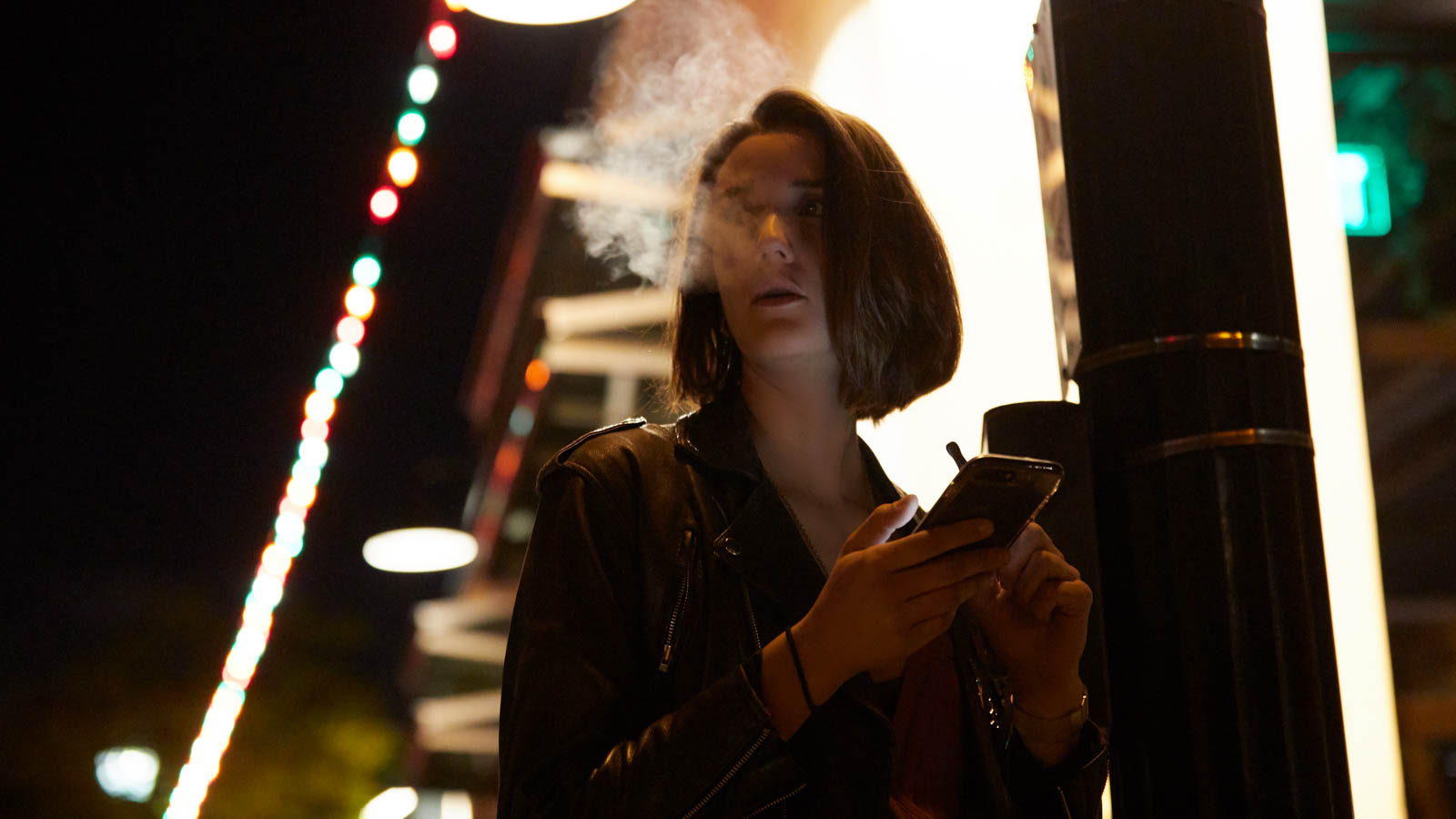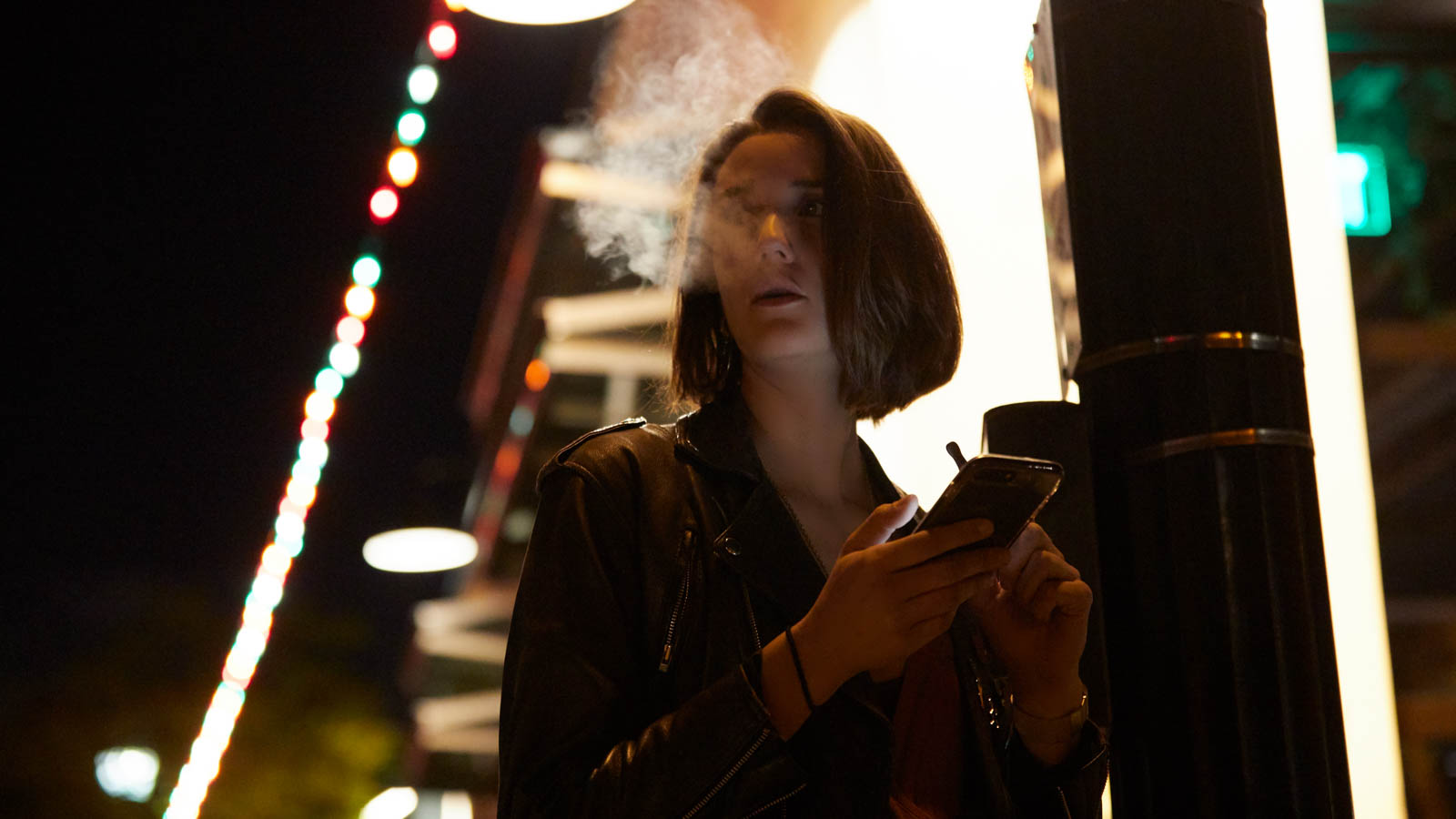
It was bad news when Superette‘s Instagram account went down.
It was bad news partly because of when it went down, April 4, 2019, three days after the brand new cannabis store’s grand opening on April 1 (the first day of legal sales in Ontario), and partly because the store’s entire aesthetic — idiosyncratic 1980s vibe, streetwear displays, the large neon flower hanging in their store — is geared towards being obsessively Instagrammed.
“Zero warning,” said Thaomy Lam, the store’s head of marketing, to Weedmaps News. “We sent inquiries, ten per hour for four days straight, and the only response we got was that we violated the community guidelines.”
Superette wasn’t the only one, either. In Canada and the United States, the Instagram accounts of many retail cannabis operations, including Superette, Hobo Cannabis, Fire and Flower, Green Care Solutions, as well as cannabis content creators and others who spoke to Weedmaps News, were suspended in recent months. In each case, the accounts were never given any warning, and received no clear explanation from Instagram.
Many of those who have seen their accounts suspended believe that, since late 2018 and continuing into 2019, Instagram and its parent company, Facebook, have had the cannabis industry in their sights, and across North America, dozens of accounts have recently been suspended by the tech giant — and many of them weren’t even breaking any laws. Even legal cannabis businesses complying with all cannabis marketing regulations in Canada and the United States have seen their accounts taken offline recently, often with no warning or notice.
These deletions affect a wide variety of content that many in the cannabis community enjoy. Some deletions affect accounts where people are sharing growing tips and educational information. Others deprive users of entertainment content — funny posts, memes, opinions, feuds, and the like. Some are spaces for activism and networking.
Instagram has been suspending accounts of cannabis retailers and influencers who incorporate marijuana into their photos, videos, and stories. Neither Instagram nor its parent Facebook would comment on why accounts were booted. (Photo by Gina Coleman/Weedmaps)
While account suspensions have been a regular occurrence for cannabis content creators, there is a growing sense that the pace of those suspensions is increasing, as is the range of things for which a suspension is handed out. The whole thing has prompted some to ask if cannabis content has a home on Instagram, or if, despite the plant’s expanding legality, the platform will remain a place where cannabis content is subject to strict (and some might say arbitrary) policing.
Social Media Accounts Matter
It might sound trite to say that losing access to one’s Instagram account is a big deal, but for a store like Superette, it is. The store’s brand is partly based on being beautiful and accessible, so losing its Instagram account, where the appearance of being beautiful and accessible is the point, was bad news. “That’s our way to naturally engage with our followers,” Lam said.
For brands that are trying to win over the lucrative 18-to-34 age demographic, Instagram is an important space for the creation of a brand identity in the cannabis industry.
“Instagram is essential to a cannabis business building an online presence,” lawyer Ryan Kocot told Forbes contributor Andre Bourque. “Once Instagram loosens up its advertising guidelines, the platform will be all the more essential to cannabis businesses.” Instagram has long been a place where the cannabis community congregates. A 2016 study by researchers from the Washington University School of Medicine in St. Louis found that, in a two-week period in 2014, people tagged their posts with marijuana-related hashtags 417,561 times.
Consumers, Lam said, are increasingly interested in building relationships with brands, so spaces where that interaction feels more dynamic and authentic — like on Instagram, where brands and people are all working with the same tools — are commercially important. “It’s almost like an online community of people who love our brand and interact with our brand, so to us, the communication is lost,” Lam said. “The Instagram platform helps us connect to the customer.”
It’s not just corporate brands who are seeing their accounts be targeted. Koala Puffs, a popular cannabis Instagrammer who makes her living on the platform, has had her account occasionally suspended, or posts deleted as well. She is a regular poster on Instagram, with selfies, videos of her taking bong hits, and livestreamed slices of life as a professional stoner.
“It was 170,000 followers that I’d gained in the nine months [that the account was active], so that was definitely heartbreaking,” she told Weedmaps News. “Any time that Instagram has taken my account down, fans start tweeting and they DM on Instagram, email me about the emails they wrote. They really kind of boycott Instagram any time that they mess with my account.” Her account remains active, and now has more than 600,000 followers.
Trippy Treez, another Instagram influencer with more than 200,000 followers, saw her account suspended for two months in December 2018, part of what she believes is an increased appetite on the part of Instagram to police cannabis-related accounts.
“I’ve had my account, I’d say, for about two or three years now, posting on it actively every day,” she told Weedmaps News. “I always kept it clean, in the sense of not showing anything that would cause somebody to report it.”
After two months, her account was restored, though it was suspended again earlier in May 2019 for 12 hours. She says she was never given any indication why it was taken down, or subsequently restored.
No Answers, Many Questions
Instagram did not respond to any of Weedmaps News’ multiple requests for comment for this story, but the platform’s community guidelines state that: “Offering sexual services, buying or selling firearms and illegal or prescription drugs (even if it’s legal in your region) is also not allowed. Remember to always follow the law when offering to sell or buy other regulated goods.”
But for Instagram influencers, for whom the line differentiating commerce and content is a blurry one, that rule can be hard to enforce. Instagram influencers can get paid to feature a company’s products and post about them. There’s a thriving market for this in the cannabis industry as well. Depending on the size of an influencer’s following, the fees for sponsored posts — which generally look identical to regular posts, but with a #ad or #sponsored disclaimer added at the end — can run into the thousands of dollars, enough to make what Koala Puffs and Trippy Treez do a viable career option.
Cannabis brands and influencers, some with 100,000 or more followers, are complaining that Instagram is deactivating their accounts. (Photo by Katka Pavlickova/Unsplash)
Koala Puffs doesn’t consider what she does to be selling, at least not in the strictest sense of the word, so she is uncertain what rules she’s broken. “It’s just me simply showing what type of edible I eat, or the type of rig that I like,” she said. “I can talk about a product, which is beneficial both to the person that’s buying the product and the company that’s making the product for people to be able to promote it.”
So why does this type of content result in the deactivation of an account? Nobody seems to know, because nobody at Instagram will tell them. The lack of transparency is a common stance and frustration for social media companies when it comes to content policing, and Instagram is no different. In October 2018, Bess Beyers, another popular Instagram influencer, started a petition calling for Instagram to updates its Terms of Service to keep cannabis-related accounts from being deactivated without warning.
“You do something, and either you get a notice and take it down, or you just do it,” said Christian Borys, a filmmaker who has shot films about the cannabis industry. “You don’t know why you get shut down … it’s senseless to trust in social media, when nobody knows what the rules are.”
“Instagram is a free service,” said Marc Wasserman, a lawyer who works in the cannabis industry in California. “They don’t have to have a reason, really. … I really don’t know. I couldn’t say with any certainty how or why an account gets taken down.”
For cannabis Instagrammers, the recent spate of deletions feels eerily similar to the onslaught that the cannabis community seemed to be feeling last year, but on YouTube. There, many cannabis-related accounts were also taken down in spring 2019.
Some people have started new accounts to try to rebuild their following. Others, like Freddy Rashid of Green Care Solutions, appealed their bans. When his account went down, Rashid called Wasserman, who gave him a basic script to write as part of the appeal to Instagram — one that, essentially, claimed that vindictive forces were reporting their page, and that they felt they were the victim of discrimination. “That word scared ’em,” said Rashid. “ ’Discriminated.’ That single word, they don’t want to deal with it. In their mind, they said ‘fuck it.’ ” The account is still up.
The owners of those accounts are still confused. They see cannabis being normalized all around them, and they see lavish ad campaigns by beer and liquor companies on social media, and they wonder why the legal cannabis market is treated so differently.
“I just think it’s a little interesting that a marketing and social media website that’s accessed by 77.6 million people are not being innovative,” Lam said. “Progress is happening everywhere in cannabis, and in Canada it’s 100% legal, so I don’t understand why social media companies don’t join the rest of us.”











